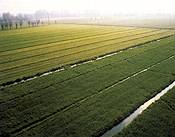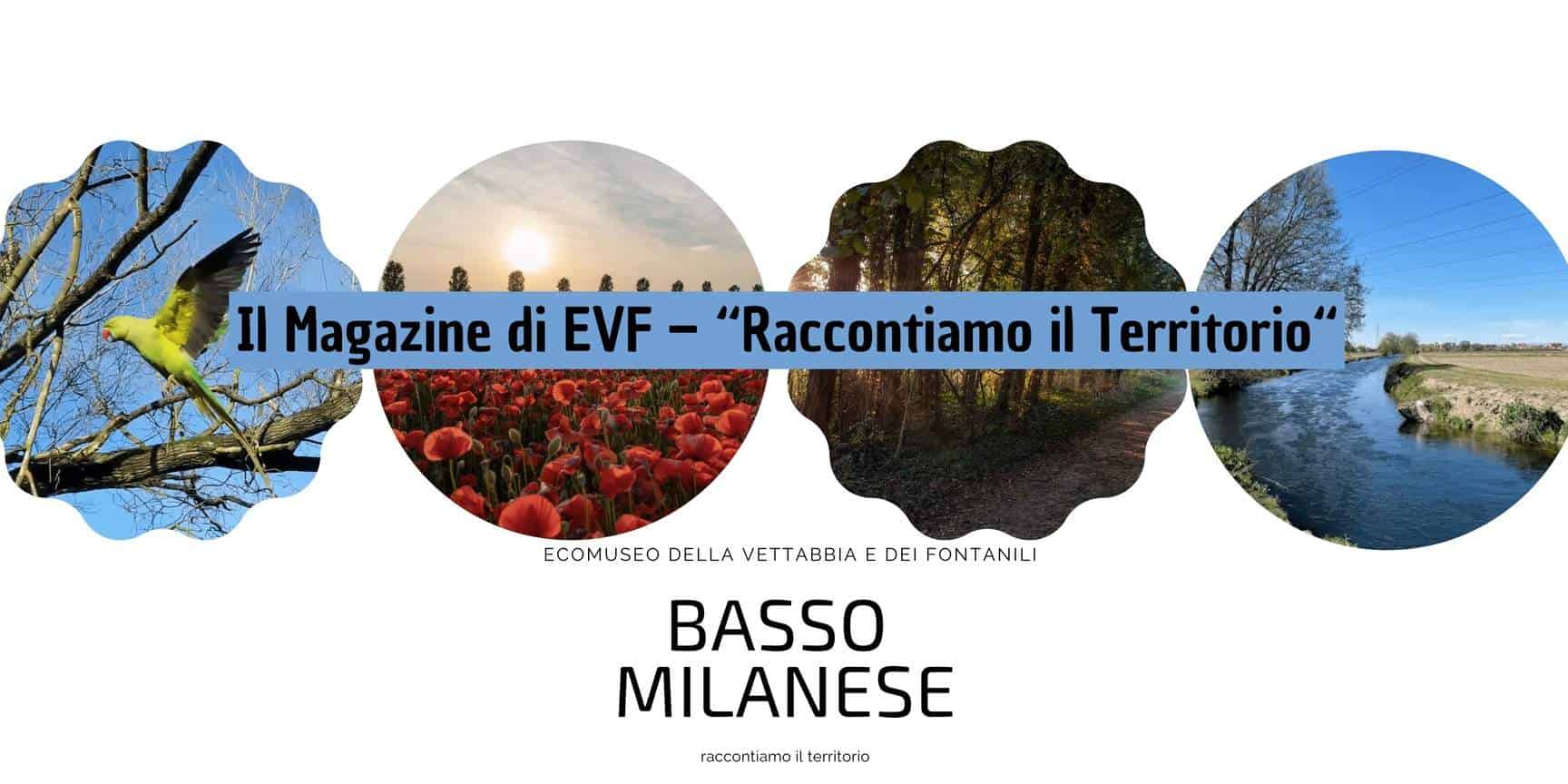The Resource of the Fountains
The territory on which the city of San  Donato Milanese was born and developed, whose area today is 12.85 square kilometres of alluvial deposits, is characterized by the phenomenon of fountains. The fountains are areas where the aquifers emerge on the surface.
Donato Milanese was born and developed, whose area today is 12.85 square kilometres of alluvial deposits, is characterized by the phenomenon of fountains. The fountains are areas where the aquifers emerge on the surface.
San Donato Milanese is located on the border between the high and the low plain of Lombardy where the aquifers rise to the surface creating bubbles of natural spring water “the resurgences”, from which natural channels called “the fountains” depart. The “fountains” have been always used for irrigation and the creation of wet meadows “the rotten”.
The peculiarity of the waters of the fountains is to maintain a constant temperature even in winter, around 10ºC, preventing freezing and keeping the meadows green and stable during the year. The large presence of water in the area around San Donato Milanese has allowed the development of an extraordinarily fertile agricultural environment, which characterized this territory until a few decades ago.
The work of the monks
The Cistercian monks, who settled in Chiaravalle in 1153, began a reclamation work in the XII century that deeply marked the environment, transforming areas once swampy into highly productive soils.
 The work of the Cistercian monks, and later of the Umiliati, allowed to transform that “land of marshes” into an intensive and specialized agriculture, thanks to the creation and exploitation of a network of irrigation channels and fountains for extensive irrigation and also thanks to the cultivation of rots. The rots are an agricultural system that exploits the water of the springs allowing continuous production cycles, without seasonal stops. In fact, it is a system that allows the cutting of grass even nine times a year, ensuring a continuous production of fresh fodder for cattle farms.
The work of the Cistercian monks, and later of the Umiliati, allowed to transform that “land of marshes” into an intensive and specialized agriculture, thanks to the creation and exploitation of a network of irrigation channels and fountains for extensive irrigation and also thanks to the cultivation of rots. The rots are an agricultural system that exploits the water of the springs allowing continuous production cycles, without seasonal stops. In fact, it is a system that allows the cutting of grass even nine times a year, ensuring a continuous production of fresh fodder for cattle farms.
The precious resource of the Fontanili in the territory of San Donato Milanese now includes a single march of about 30 hectares, located between the Milan-Genoa motorway and the Bagnolo farmhouse, which is an element of significant natural interest. The reclamation work continued practically without interruptions over the following centuries, ending only in the nineteenth century and devoting the territory of San Donato to agricultural exploitation.
Podcast
Traduzione in lingua inglese e podcast realizzati da Milena Pugliese – Progetto PCTO con Regina Mundi
Registrazione Podcast a cura di Luigi Maisto
Supervisione – Piera Scudeletti EVF
